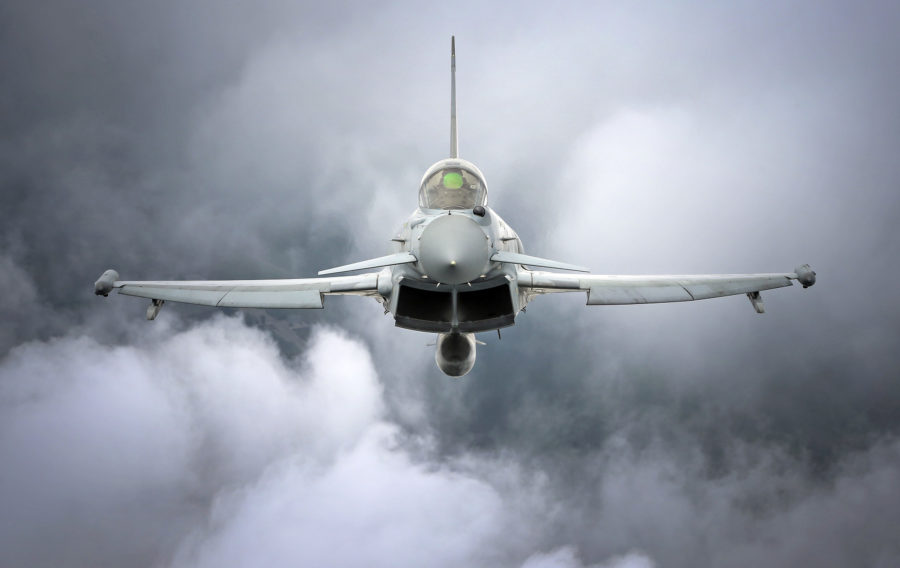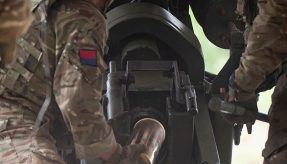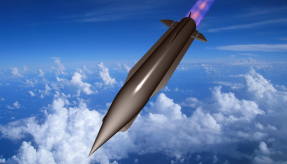
The UK Ministry of Defence has named Leonardo in-service support provider for its pre-flight threat simulation equipment.
Leonardo has designed and developed its UK threat simulation equipment in partnership with the Ministry of Defence, employing state-of-the-art Radio-Frequency (RF) technology to recreate a wide variety of scenarios and threats.
Specialist RF-emitting hoods and handheld devices are able to target specific platforms and simulate threats using real radar energy, all while the aircraft is grounded. In carrying out this preliminary check, pilots can be assured that the platform’s RF defences are operational before they embark on a mission.
According to Leonardo, the majority of Defensive Aids Suites on air platforms come with ready installed ‘built-in-test-equipment’ (BITE), which signals to the pilot when the equipment is not working. During the lifespan of an aircraft, and with each mission it undertakes, unforeseen problems can emerge as it receives ongoing maintenance.
For instance, in some cases the RF antenna degrades. These issues might not be identified by the BITE however, meaning the installation is not operationally effective. Consequently, limited or inaccurate information could be relayed to the pilot by the system, endangering the crew.
Leonardo is helping to plug this gap by providing improved ‘capability assurance’ throughout a platform’s operational lifespan. The post-design support contract will run over a five year period, spanning 2018-2022, and support the Ministry’s Typhoon, Tornado, Merlin, Wildcat, Chinook and C130J platforms.
If you would like to join our community and read more articles like this then please click here.







